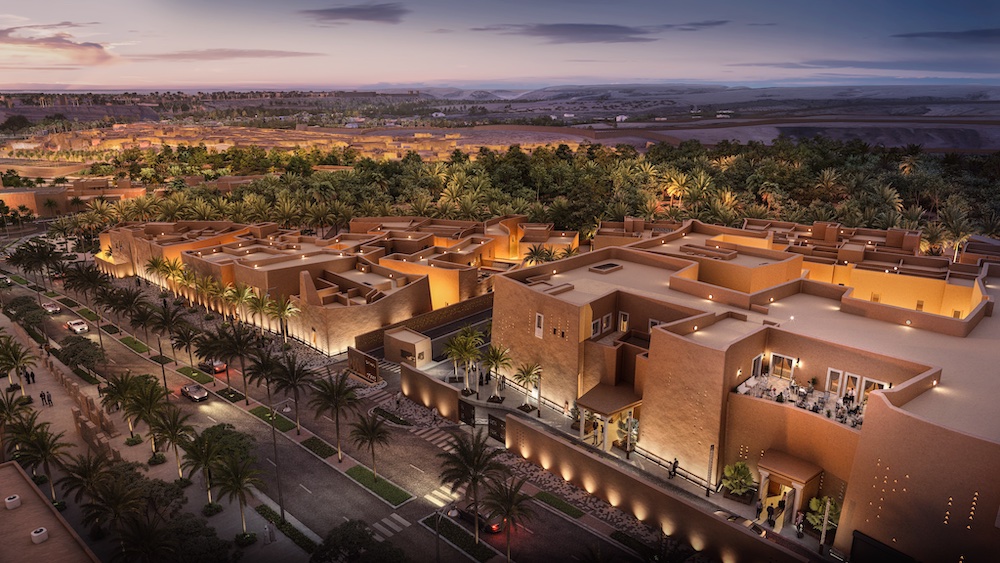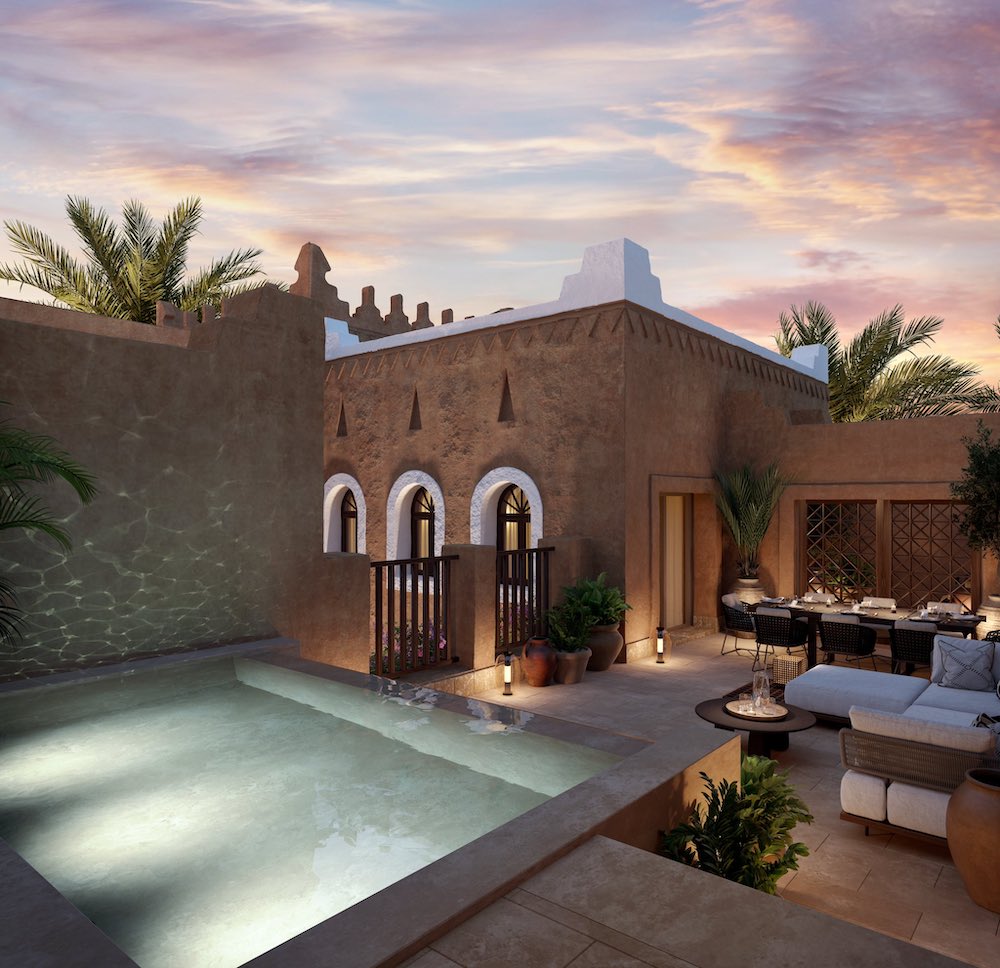RIYADH: Diriyah Gate Development Authority Group CEO Jerry Inzerillo is highlighting the Kingdom’s rich historical roots this Founding Day.
“Founding Day for all of us in Diriyah is special. It’s who we are,” Inzerillo told Arab News.
“Let us celebrate what’s uniquely Saudi. We own this culture, there’s a lot of pride in it. There are 238 countries in the world. But this (Diriyah) is the birthplace of the Kingdom. This is the source of our identity. This is the source of our national pride. Let’s rejoice who we are as a people.”
In what he described as a celebration of pride and culture, Inzerillo welcomed people from around the world to come to Diriyah to experience the rich history of the Kingdom’s birthplace.
“Let them come and receive a warm welcome. Let them be festive and joyful, safe and secure and sound with a great quality of life, which is what Diriyah represents and what the Kingdom of Saudi Arabia and certainly what Vision 2030 represents,” he told Arab News.
FASTFACTS
- On Feb. 1, 2022, Saudi Arabia’s Council of Ministers made an announcement declaring Feb. 22 of each year as Founding Day.
- The day commemorates the foundation of the First Saudi State in 1727 by Imam Mohammed bin Saud.
This is a celebration of national pride linking the historical roots of the First Saudi State nearly 300 years ago to the modern Kingdom today, celebrating history culture and identity through Founding Day, he said.
On Feb. 1, 2022, the Council of Ministers made an announcement declaring Feb. 22 of each year as Founding Day to commemorate the foundation of the First Saudi State in 1727 by Imam Mohammed bin Saud.
A celebration of the Kingdom’s deep historical and cultural roots, Founding Day marks a key moment in Saudi Arabia’s timeline — the day Imam Muhammad bin Saud assumed power in Diriyah, the capital of the First Saudi State.

DGDA’s group CEO Jerry Inzerillo welcomed people from around the world to come to Diriyah to experience the rich history of the Kingdom’s birthplace. (DGDA)
“Founding Day is very special, you know we all love National Day, September 23rd is a great day, everybody is out in the street jubilant and festive as we get ready for 94 years of national pride. But Founding Day is very special because that has to do with the 300-year history of the Kingdom and especially its birthplace, Diriyah,” Inzerillo said.
During his interview with Arab News, Inzerillo reflected on the nearly six years he has been group CEO of DGDA, working closely with Crown Prince Mohammed bin Salman in bringing the vision of Diriyah to fruition.
“When you have the privilege to serve at this time with two great visionaries — the Custodian of the Two Holy Mosques — I always praise King Salman, he deserves our love and praise because because if it wasn’t for him we wouldn’t have At-Turaif, we wouldn’t have the birthplace of the Kingdom celebrated as it is,” Inzerillo said.
“When we think about the Custodian of the Two Holy Mosques King Salman, his love has always been Diriyah. The Kingdom and its people, of course, but in his heart he has always had a special love for Diriyah,” he said.
Inzerillo expressed his pride in seeing the dream of King Salman realized. “To see his (King Salman’s) dream coming out of the ground — to see his royal highness, the crown prince, his vision, a vision of 2030 where people are enjoying themselves … people festive, happy, laughing with their families, joyful in beautiful park settings and around the mud of the UNESCO site.”

Diriyah represents and what the Kingdom of Saudi Arabia and certainly what Vision 2030 represents. (DGDA)
Inzerillo said that this past Saturday, the At-Turaif World UNESCO Heritage Site had 13,000 visitors and both the Al-Bujairi Terrace sold out, as well as the Diriyah Nights Layali Diriyah.
“This is what quality of life is all about. During the daytime you see people jogging, having picnics with their families, horseback, on bicycles. This is what quality of life is like. So, to see that Diriyah as a community can bring enjoyment to its community first and to the community of Riyadh and to the Kingdom is a source of pride,” he said.
Inzerillo lauded Crown Prince Mohammed bin Salman for what the CEO describes as “a fabulous master plan.” He said: “We have to give him immense credit.”
Inzerillo highlighted what it has been like to work closely with the crown prince, praising his dedication to the Kingdom’s projects and the attentiveness and care he gives people.
“The more I work, with a daily, weekly basis with his royal highness, the more admiration I have for him and I didn’t think that could be more than 10 out of 10, but considering his global leadership, especially during the time of crisis that we have in the Middle East right now, to see his global leadership role into making the region safe and prosperous with a good quality of life from everybody is amazing,” Inzerillo said.
He highlighted the extensive role the crown prince has — detailing that the crown prince is presiding as prime minister over a G20 country while presiding over different master plans in the Kingdom with the aim of “making life better for not only the people in Saudi Arabia but also people in the region and in the world.”

DGDA’s group CEO Jerry Inzerillo says, “Diriyah lives in the heart of every Saudi, it is the source of our national pride, it is the source of our identity as a people.” (DGDA)
He said: “To see how devoted he (Crown Prince Mohammed bin Salman) is and how much time he gives all of us — not just his ministers, which I would suggest to you are probably the finest cabinet ministers in the world now as a collection of ministers — but even all of his CEOs that he is chairman of, he affords them the time, he’s in the details, he cares and he always asks, ‘How about the staff? ‘How is everyone doing, how is the team?’ ‘Send them my best.”
Inzerillo said: “His empathy, his dedication and his time that he gives us is really remarkable for all of his responsibilities.”
Inzerillo became CEO of the Diriyah Gate Development Authority in June 2018, and in four months marks the six-year anniversary of his appointment.
He said that it has been a privilege to serve the Kingdom as DGDA CEO, highlighting his pride to work with what he describes as “super people” — young Saudis and expats from all around the world who he said were helping to achieve the mission of 2030.
“I think back and I think what a privilege it has been,” he said.
“Diriyah has always been special, it lives in the heart of every Saudi, it is the source of our national pride, it is the source of our identity as a people, it’s where the Kingdom of Saudi Arabia originated.
“(Diriyah) is not only the birthplace of the Kingdom and of the Arabian Peninsula, but it is the home of Al-Saud, one great family that with vision and perseverance in unity has kept the Kingdom together for over 300 years.”
The CEO outlined what the future holds for the Diriyah Gate Development Authority.
“This year — hotel openings, museums openings, more parks opening, you know, many different types of assets opening. So every year, every December, like we did December 2021, December 2022 to December 2023, and December 2024, we will have assets open, groundbreaking new assets and announcing new assets until it culminates in the fabulous Expo Riyadh 2030.”





























